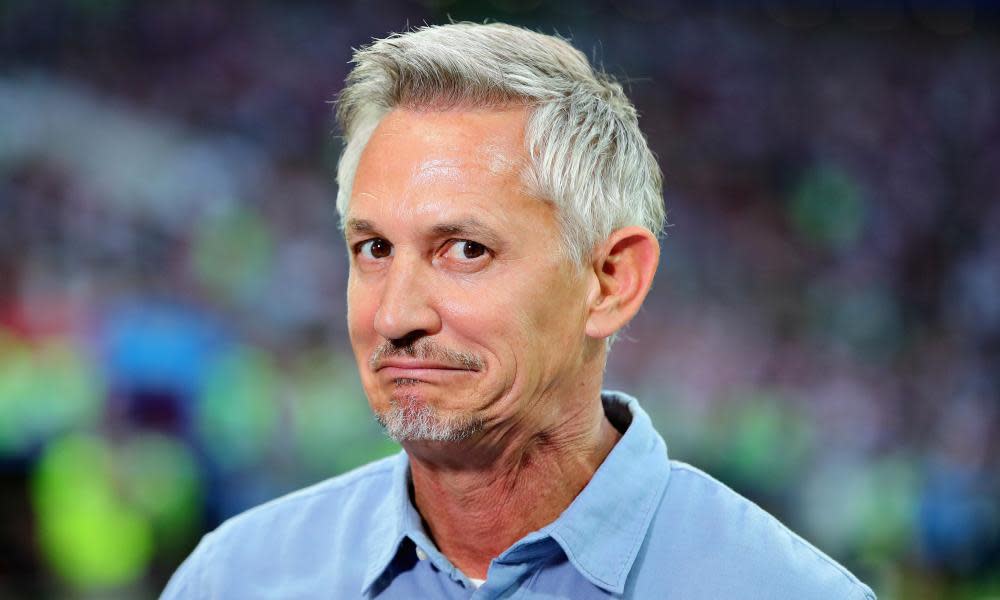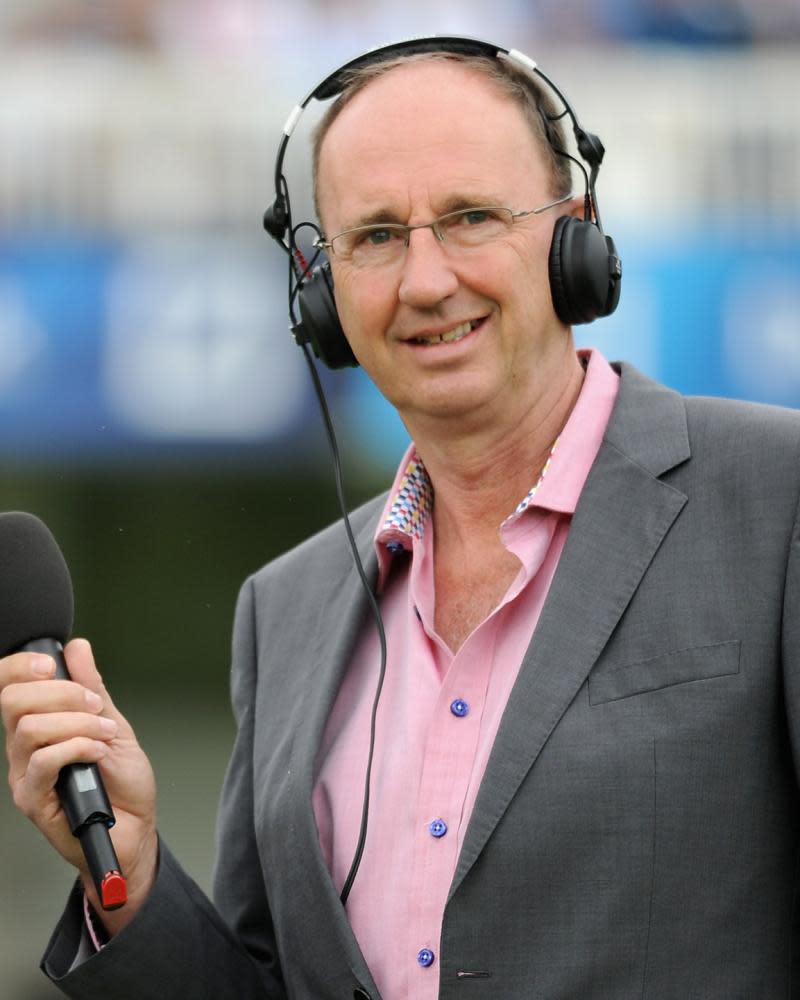Brexit’s coming home – now Lineker, Waddle and Shilton have got involved

It was inevitable that Brexit would divide the country. But who would have thought it would also do for that supreme symbol of English pride, togetherness, bulldog spirit, hope and almost-glory – the 1990 World Cup football team?
Twenty-eight years ago, football very nearly came home (six years before the actual song) when England finished a heroic fourth in the World Cup. Back then the nation was united by Gary Lineker’s goals, Peter Shilton’s saves, Gazza’s tears, and Chris Waddle’s penalty miss.
And now? It seems as if we’d be hard-pressed to get the boys to share the same football pitch, never mind a vision for our post-Brexit future. The scuffle started last week – on Twitter, of course – when Waddle (62 caps, six goals for England) tweeted: “Well done Theresa May, now let’s leave Brexit with no deal we will be fine.” As is the way with controversial celebrity tweets, it has now been deleted.
The centre-forward Lineker (80 caps, 48 goals) responded to his ex-wing man by telling him to “stick to football”. A rather audacious case of pot and kettle you might think (which he acknowledged with his use of smiling, laughing emoji). After all, this is the very Gary Lineker who announced in July: “There are some things in life that, even for someone like me, are more important than football,” and who has spent the past five months campaigning for a people’s vote.
Indeed, such is the schismatic might of Brexit that, at times, Lineker has appeared to be at war with himself. Last year he tweeted: “Leave won. Get over it.” He has since said he is “happy to admit I’ve now changed my mind,” and that he “did not envisage at the time that we’d ever contemplate a no-deal Brexit and the ensuing carnage that would bring”.
Waddle and Lineker at war? We’ve barely started. Jonathan Agnew, who heads up the BBC’s cricket coverage, told Lineker in no uncertain terms (yes, on Twitter, of course) that he should heed his own advice and stick to football. “You are the face of BBC Sport. Please observe BBC editorial guidelines and keep your political views, whatever they are and whatever the subject, to yourself. I’d be sacked if I followed your example.” Such bravura pomposity would put the effortlessly supercilious Jacob Rees-Mogg to shame.
@GaryLineker Gary. You are the face of BBC Sport. Please observe BBC editorial guidelines and keep your political views, whatever they are and whatever the subject, to yourself.
I’d be sacked if I followed your example. Thanks.— Jonathan Agnew (@Aggerscricket) December 13, 2018

Talking of whom, the great Brexiteer himself was then up for a discussion in what was fast becoming a debate of Solomon-eque sagacity. And strangely enough this takes us straight back to England’s 1990 World Cup squad. None other than the legendary goalkeeper Peter Shilton, England’s most capped player (125) tweeted on Wednesday: “Have been so impressed with @Jacob_Rees_Mogg @Conservatives @itvnews with interviews in the last few days.”
Not surprisingly, this got Lineker’s goatee. “What’s that old saying?” he tweeted. “You should never see a tweet from your heroes?” Lineker found himself supported by the former England midfield enforcer Peter Reid (who played in the World Cup in 1986, though he had retired by 1990). “I’ll agree to disagree on that one, Goalie. He’s loopy, doesn’t know his arse from his elbow,” Reid tweeted.
I’ll agree to disagree on that on e Goalie. He’s loopy, doesn’t know his arse from his elbow.
— Peter Reid (@reid6peter) December 12, 2018
At the time of writing, the world is still waiting for Paul Gascoigne’s contribution. But we have it on good authority that he’s feeling rather lachrymose about the whole sorry Brexit soccer shitshow. Meanwhile, it looks as if Rees-Mogg, newly reborn as a Harry Redknapp‑esque man of the people, has been called in to arbitrate. A panicked Shilts tweeted him begging: “Help me out here! @Jacob_Rees_Mogg I only said you interviewed well on @itvnews I’m getting hammered.” If we’re relying on the honourable member for the 18th century to bring people together, then we really are in trouble.
• Simon Hattenstone is a features writer for the Guardian

 Yahoo News
Yahoo News 
